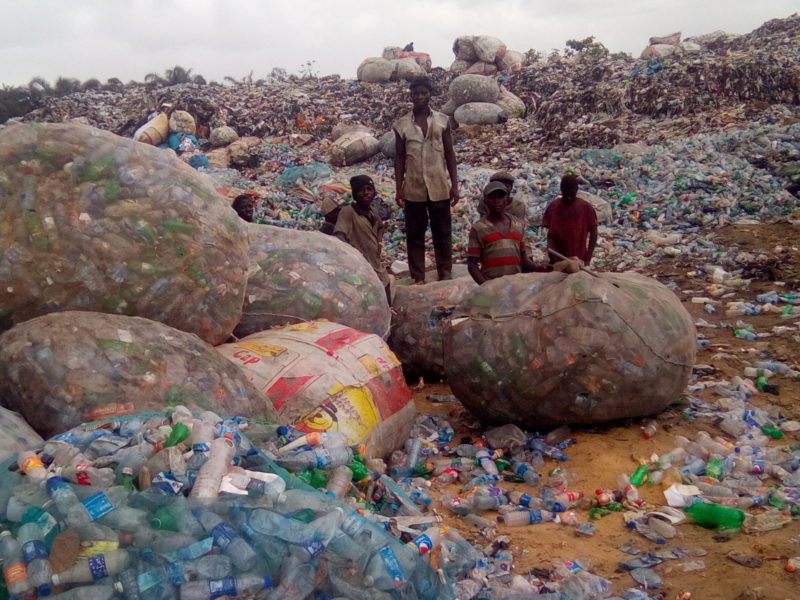In line with this year’s World Environment Day theme on beating plastic pollution, Climate and Sustainable Development Network (CSDevNet), in collaboration with partners and other non-state actors, is calling on the Government of the Federal Republic of Nigeria to go beyond rhetoric and mere sloganeering and set in motion the process of banning single-use plastic in Nigeria.

The 2018 WED theme represents a veritable opportunity to consider how we can make changes in our everyday lives to reduce the heavy burden of plastic pollution on our natural places, our wildlife – and own health. While plastic has many valuable uses, Nigeria has become over-reliant on single-use or disposable plastic – with severe environmental consequences.
CSDevNet recognises that beating plastic pollution is a huge challenge especially when we consider the perverse culture of current disposable economy. Fifty percent of plastics in use are disposable or single-use type. Globally, we buy one million plastic bottles every minute and use up to five trillion plastic bags every year.
Dumping plastic bottles, bags and cups after a single use is projected to result in our oceans holding more litter than fish by 2050, while an estimated 99 percent of all seabirds will have ingested plastic. There is even evidence that plastic waste threatens soil fertility. Reports by Ocean Conservancy, suggest that there will be more plastics than fish in the oceans by 2050. Already, plastics have been found in over 60 percent of all seabirds and in all sea turtles’ species that mistake plastic for food. We must beat plastics, for our survival and for the survival of other species. We need fish, not plastics.
The Federal Government of Nigeria has a major role to play in beating plastic pollution and particularly addressing the current scourge of plastic waste on urban and rural landscapes across Nigeria. Across Africa, several African countries (including Côte d’Ivoire, Cameroon, Mauritania, Tunisia, Kenya, Uganda Rwanda, Tanzania, Morocco, and South Africa) have enacted laws related to the ban on the use, manufacture and importation of single-use plastic bags.
In view of the fact that outright bans on single-use plastics without viable and affordable alternatives (such as biodegradables or paper-based alternatives, which are often perceived as more expensive and “less durable”) could negatively affect some sections of society and small and medium-size enterprises, we urge Nigerian authorities to introduce the plastic bag levy, which is favoured in several countries across the globe, including the United Kingdom with significant success in relation to behavioural change towards single use plastics.
In some countries, such as South Africa, it has been reported that funds raised from the plastic bag levies are not entirely used in investing in recycling programmes and programmes that will bring about fundamental behavioural changes both at the individual and at the corporate level, towards beating plastic pollution for good. They are also channelled towards creating empowerment opportunities for the teaming young population.
We believe Nigeria can toe this line by providing incentives such as tax breaks for companies to encourage recycling as well as to transform their production processes towards the production of biodegradable alternatives and also strictly enforcing legislation as part of a holistic programme for sustainably transforming their economy and banning all non-biodegradable plastics from the country.
In line with the above, we call on the Presidency of Nigeria through the Federal Ministry of Environment to orchestrate steps aimed at regulating the manufacture, use and disposal of of single-use plastics in Nigeria. CSDevNet hereby commits itself to collaborating with the National Assembly Committees on the Environment, Habitat and Climate Change and other relevant non-state actors in the aggregated efforts at crafting an institutional framework to tackle the plastic menace in the country.
By Atâyi Babs
